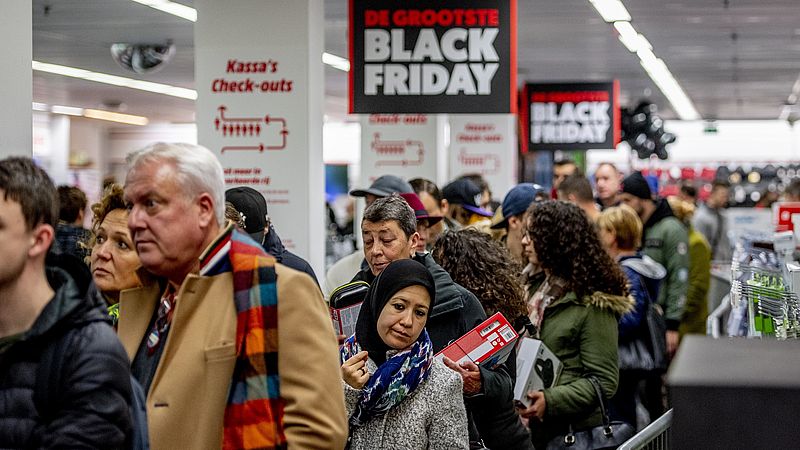Black Friday is a name used for two unrelated occasions. It is now most popularly used in the US to refer to the day after Thanksgiving, which is often considered the first day of the holiday shopping season and is known for featuring discounts from retailers.
Black Friday is always the Friday after Thanksgiving, which is always the fourth Thursday in November. In 2023, Black Friday is November 24. In 2024, Black Friday is November 29.
The name Black Friday is also used to refer to September 24, 1869, the date of a financial panic in the US sparked by gold speculators.
While many people believe the term Black Friday finds its roots in the sense of black meaning “showing a profit; not showing any losses,” this isn’t actually the case.
Historically, black has been associated with days of economic stress as opposed to days of booming commercial success. The first Black Friday occurred in 1869 after financier Jay Gould and railway businessman James Fisk attempted to corner the gold market, which ultimately resulted in financial panic and the collapse of the market. A little over 60 years later, on October 29, 1929, another stock market crash referred to as Black Tuesday marked the onset of the Great Depression.

The true origin of the post-Thanksgiving Black Friday lies in the sense of black meaning “marked by disaster or misfortune.” In the 1950s, factory managers first started referring to the Friday after Thanksgiving as Black Friday because so many of their workers decided to falsely call in sick, thus extending the holiday weekend.
About 10 years later, Black Friday was used by Philadelphia traffic cops to describe the day after Thanksgiving because they had to work 12-hour shifts in terrible traffic. Visitors flocked to the city to start their holiday shopping and, sometimes this popular shopping day coincided with the annual Army–Navy football game. The term caught on among shoppers and merchants in Philadelphia, and from there it took off nationwide







